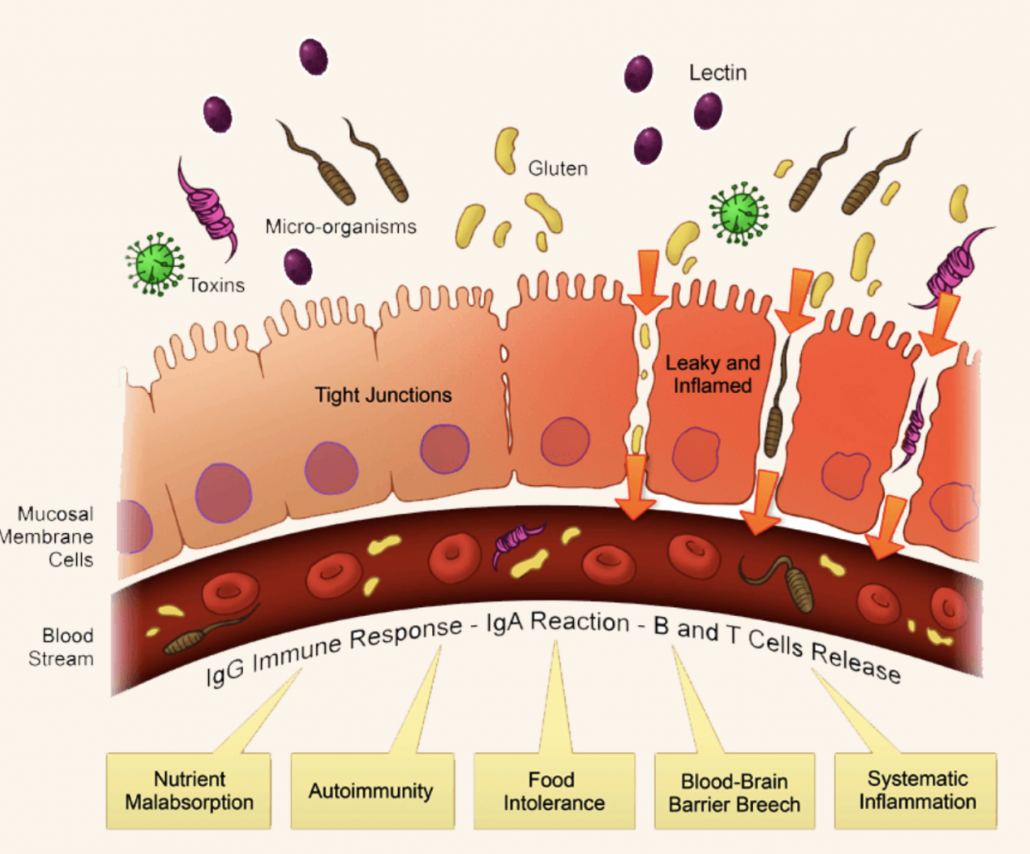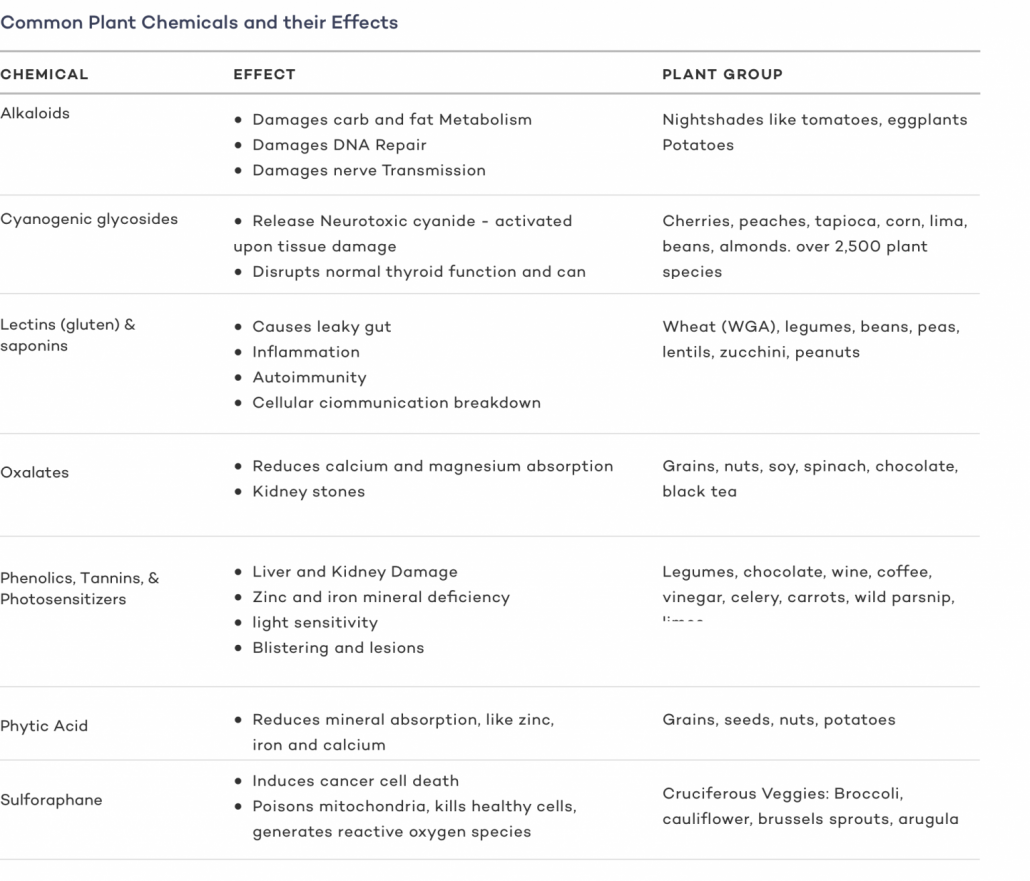We include products in articles we think are useful for our readers. If you buy products or services through links on our website, we may earn a small commission.
What is the No Sugar, No Carb Diet?

The no carb, no sugar diet eliminates all carbs and sugar in order to reduce inflammation, heal the gut, and align our physiology with ancestral eating patterns.
A no sugar, no carb diet is the most restrictive version of both keto and carnivore.
With both keto and carnivore, you focus on high-fat whole foods while dramatically cutting carbs to less than 15% of your daily calories. But on a no sugar, no carb diet, you completely get rid of all carbs.
Though some no sugar no carb eaters, especially those of you on an all-meat diet, allow for very small amounts of carbs in some organ meats and seafood.
All versions of no sugar no carbs diets eliminate all
- added sugars
- Juices
- Fruits
- Nuts
- Seeds
- Grains
- vegetables
However, most people practicing no sugar no carb diets allow for cheat/treat days with foods some high-carb whole foods like french fries fried in tallow and keto-friendly homemade ice cream.
Let’s take a deeper look at the no sugar, no carb diet, the health benefits, and how to.
Table of Contents
What is a No Sugar, No Carb Diet?
A no sugar, no carb diet is a way of eating that eliminates all digestible carbs and added sugars.
You can calculate digestible carbs by subtracting the amount of fiber in a food from its total carb count. [1]
Many people going no sugar, no carb do so to heal gut issues and therefore eliminate most if not all fiber. Studies show that fiber can be irritating to the gut and act like an antinutrient that blocks the absorption of important nutrients. [60] [61]
Added sugars include cane sugar, beet sugar, corn sugar, honey, and many others that you can find on the list below.
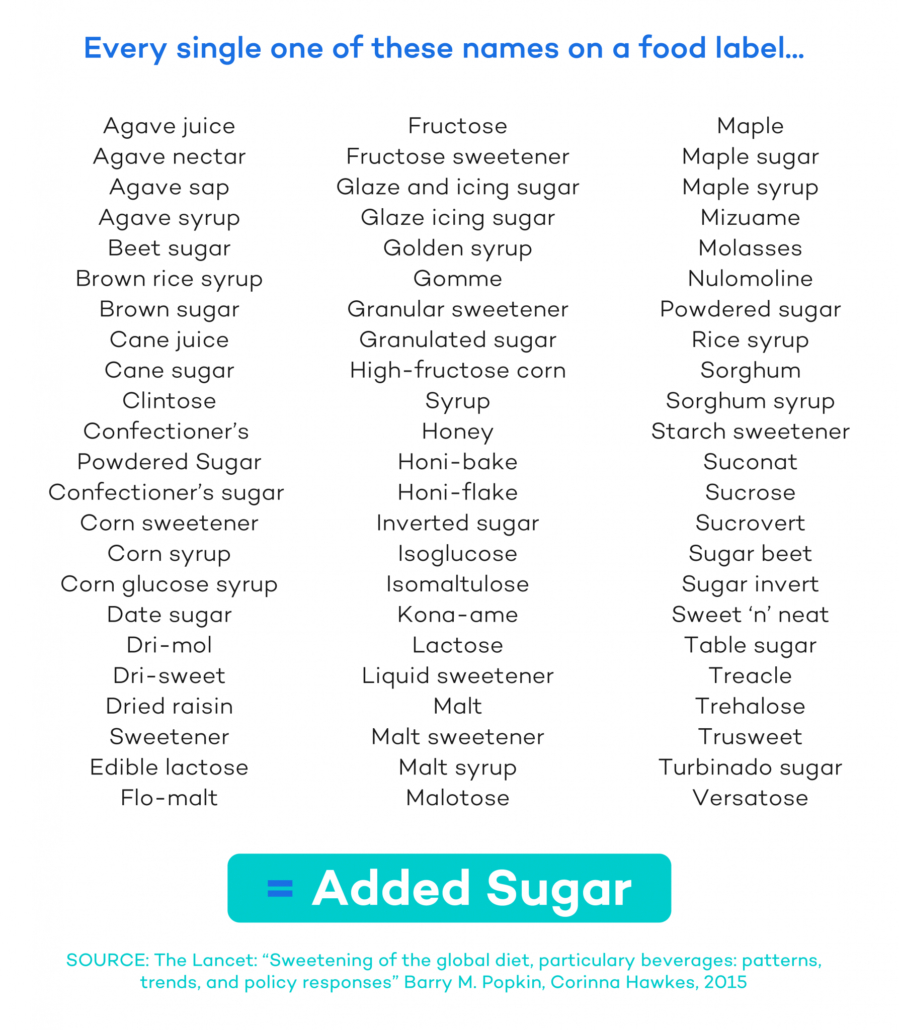
No Sugar No Carb Macros vs. Ketogenic (Low-carb) Macros
A no sugar, no carb diet calls for a macro ratio that looks roughly like
- 70-80 percent calories from fat
- 20-30 percent calories from protein
- 0 percent calories from carbs
Standard keto and carnivore macro percentages fall into the below ranges
- 70-80 percent calories from fat
- 15-30 percent calories from protein
- 5-10 percent calories from carbs
We Eat Too Much Sugar

The Western diet is majority carbs (60%) in the form of grains, fruits, legumes, and all vegetables. In addition, over the decades, we’ve dramatically increased our intake of added sugars.

The average American eats 126 grams of sugar a day, and it’s likely that children consume even more. [4] That all adds up over 100 lbs of added sugar for most people.
Why Cut Sugars and Carbs
Well-formulated no sugar, no carb diets may provide numerous health benefits, especially when used to treat metabolic disorders caused by chronically high carb exposure from a Standard American Diet.
Researchers link consuming a Standard American diet high in processed foods, added sugars, and industrial vegetable oils to numerous modern inflammatory diseases.
These inflammatory diseases are called “the diseases of civilization,” because they were essentially non-existent for our hunter-gatherer ancestors who ate extremely low-carb and mostly carnivorous diets.2 3
The Discordance Theory
The idea that modern diseases are caused by a discord between our modern diets and our ancestral physiology is called the discordance theory.
Over millions of years, our genetics evolved to regulate inflammatory responses within a hunter-gatherer lifestyle defined by low-carb, high-fat diets. [4][ 5]
In this way, a no sugar, no carb diet can be viewed as a strategy for realigning our physiology (evolved over eons on low and no carb foods) with ancestral eating patterns.
Chronic inflammatory diseases and disorders associated with the Western diet and lifestyle include
- heart disease
- hypertension
- type 2 diabetes
- epithelial cell cancers
- inflammatory diseases (including autoimmune diseases, bowel disorders, osteoporosis, infertility, and more)
Since the root of all these diseases is chronic inflammation, and sugar contributes to chronic inflammation, eliminating sugar and carbs is seen as a way to combat these diseases.
Cut Sugar and Carbs to Reduce Inflammation
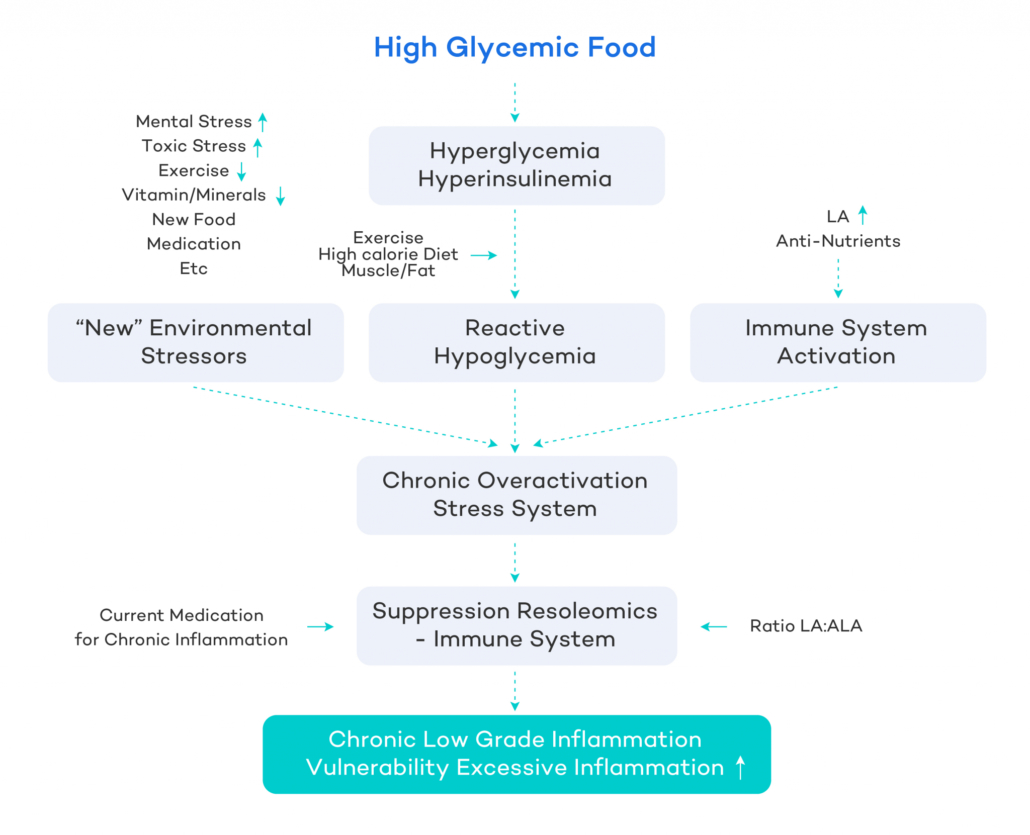
Numerous studies show that consuming sugar increases inflammation in various ways, including
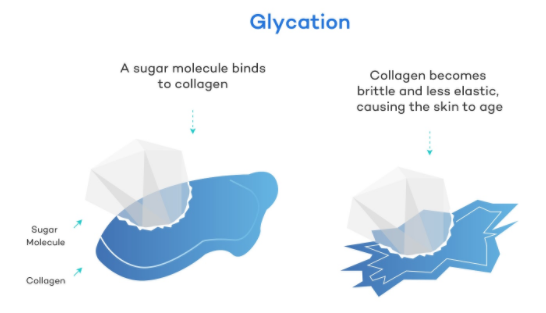
- Damaging the glycocalyx–a delicate protective membrane coating every cell in the body and regulating important functions, including cardiovascular health and immune system response [18]
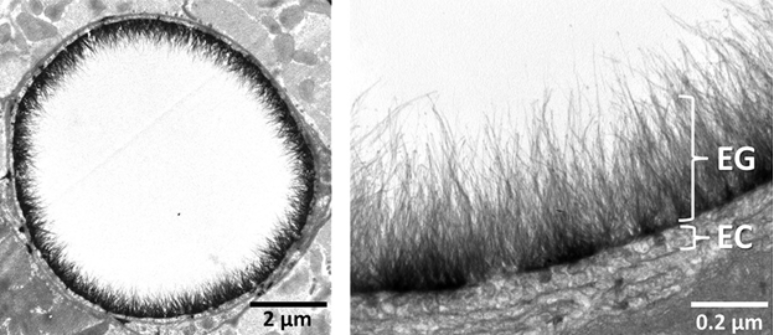
- Promoting harmful bacteria and reducing protective bacteria in the gut leads to intestinal permeability 5 5 13

- Increasing “bad” LDL cholesterol 6 14
Benefits of No Sugar, No Carb Diet
Though there are no studies to date looking specifically at the effects of a no sugar, no carb diet we do have data on the carnivore elimination diet.
Also known as the Lion Diet, this approach popularized by psychologist Jordan Peterson, calls for eating only red meat, salt, and water.
Doctors like Dr. Kiltz and Shawn Baker have promoted this way of zero-carb eating while gathering feedback from thousands of followers.
Reported benefits include
- No carb cravings
- No energy troughs
- Improved cognition
- Improved mood
- Improved markers of heart health
- Overcoming fertility issues
- Better recovery after exercise
- Clearer skin
- Better digestion
- Reduced inflammation
In 2021 researchers at Harvard University conducted the first mainstream assessment of the benefits of this carnivore approach to no sugar, no carb.
The researchers concluded, “Contrary to common expectations, adults consuming a carnivore diet experienced few adverse effects and instead reported health benefits and high satisfaction.” 3
The study included data from 2,029 people practicing a carnivore diet for at least 6 months. Key findings include:
- 93% improved or resolved obesity and excess weight
- 93% improved hypertension
- 98% improved conditions related to diabetes
- 97% improved gastrointestinal symptoms
- 96% improved psychiatric symptoms
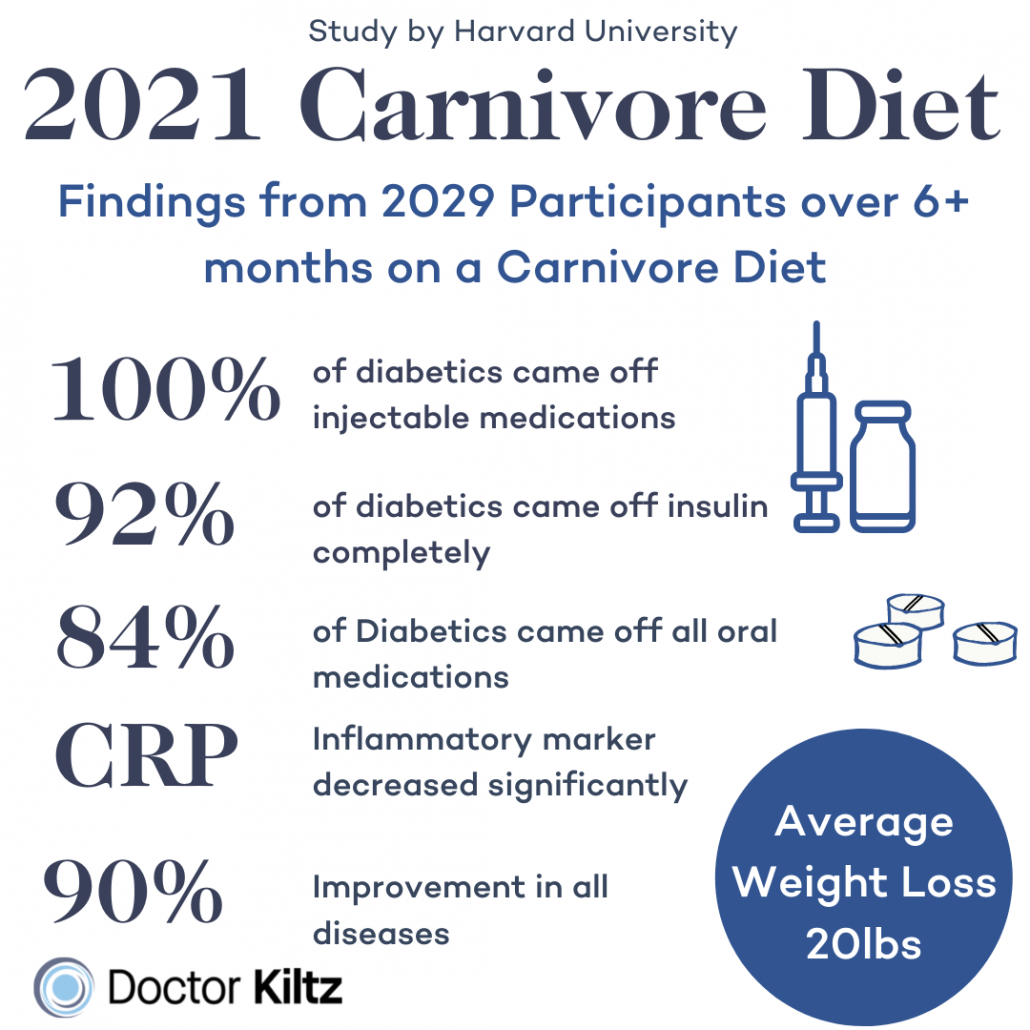
A 2019 survey conducted by Revero that promotes and supports no and low-carb carnivore dieting found similar results.
Drawing data from 12,000 zero carb lion dieters practicing for at least three months, Revero found the following results. [7]
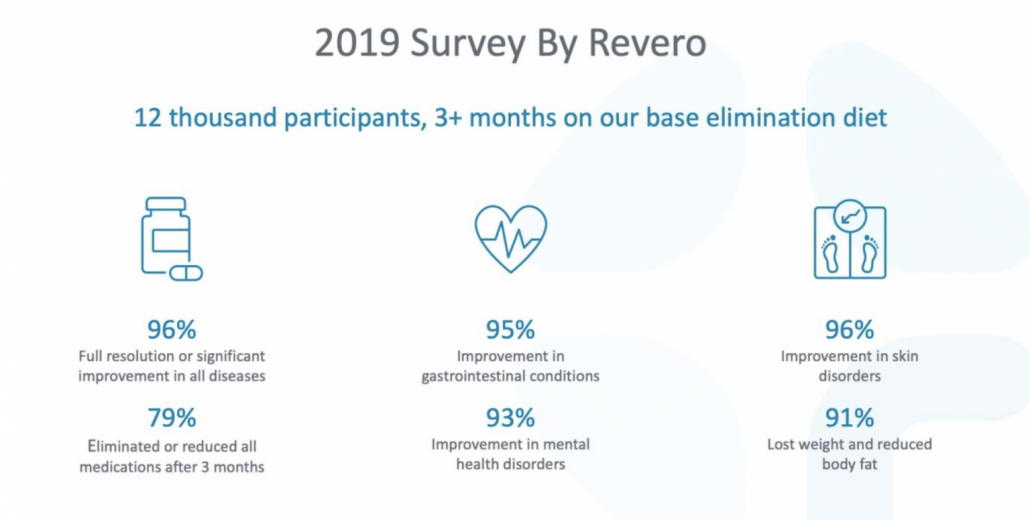
Other Studies On The Benefits of Cutting Carbs
A study comparing obese and overweight women on a high-carb diet with those on a low-carb, high-fat diet, found that the high-carb diet was associated with increased markers of inflammation. 1
A study on participants with type 2 diabetes comparing the effects of a low-carb vs. a low-fat diet found that though weight loss was the same across both groups, the low-carb diet resulted in significant reductions in inflammation. 2
A study looking at the effects of sugar in soda found that consuming only one 375 ML soda (40 grams of sugar) per day significantly increased inflammatory markers along with insulin resistance and LDL cholesterol and led to weight gain.6
Consuming a 50-gram dose of fructose causes a spike in inflammatory markers like C-reactive protein (CRP) just 30 minutes later. Furthermore, CRP remains high for over two hours. 8
Do I Need Carbs?
Despite the conventional dietary guidelines to eat a “balanced” diet loaded with high-carb fruits, vegetables, and whole grains, carbs are in fact, “non-essential”.
This means that we can survive and thrive just find without carbs. This is not the case for the other two macronutrients, fat and protein. These are essential and needed to survive.
Doesn’t it seem suspicious that we’d be told to cut out essential fat and boost non-essential carbs?
According to The textbook “Dietary Reference Intakes for Energy, Carbohydrate, Fiber, Fat, Fatty Acids, Cholesterol, Protein, and Amino Acids,” by the U.S. Food and Nutrition Board of the Institute of Medicine, “The lower limit of dietary carbohydrate compatible with life apparently is zero, provided that adequate amounts of protein and fat are consumed.
There are traditional populations that ingested a high fat, high protein diet containing only a minimal amount of carbohydrates for extended periods of time (Masai), and in some cases for a lifetime after infancy (Alaska and Greenland Natives, Inuits, and Pampas indigenous people). There was no apparent effect on health or longevity.
Caucasians eating an essentially carbohydrate-free diet, resembling that of Greenland natives, for a year tolerated the diet quite well. However, a detailed modern comparison with populations ingesting the majority of food energy as carbohydrate has never been done.” [2]
Added Benefit: No Sugar, No Carb Diets Eliminate Plant Toxins and Antinutrients
Since all plant foods have carbs they are eliminated on a no sugar, no carb diet.
Ditching plant foods has the added benefit of eliminating naturally occurring pesticides known as plant toxins.
These plant defense mechanisms were evolved in order to defend plants against harm from pests–including us humans!
Common plant foods that contain gluten, lectins and phytates promote intestinal permeability, AKA leaky gut. [32]
Leaky gut allows harmful pathogens and sugars to cross into our bloodstream, causing widespread inflammation.
 No Sugar and Carbs Means More Nutritious Foods
No Sugar and Carbs Means More Nutritious Foods
No sugar, no carb foods are among the healthiest foods on earth.
Red meat, seafood, and animal-based fats are loaded with macro and micronutrients–many of which you can only find in no carb animal products.
These animal products are among the most nutrient dense foods on earth.
These nutrients include:
- D3
- B12
- Vitamin A (Retinol)
- Heme iron
- Vitamin K2 (mk-4)
- Docosahexaenoic acid (DHA)
- Eicosapentaenoic Acid (EPA)
- Taurine
- Creatine
- Carnitine
- Carnosine
- CoenzymeQ10
No Sugar, No Carbs Foods to Eat
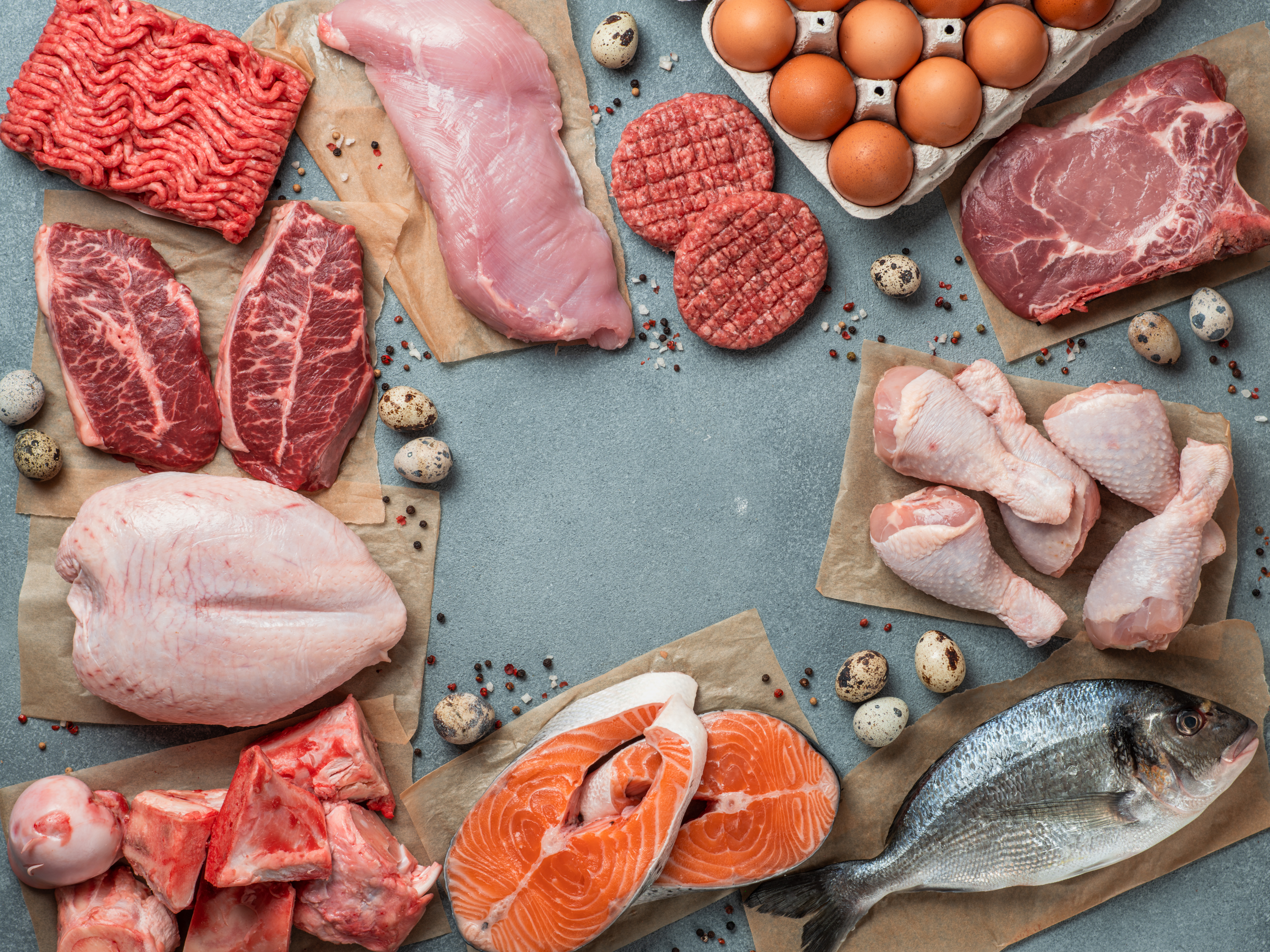
Zero carb foods include
- Red meat:beef, lamb, bison, and pork
- Animal fats: butter, tallow, ghee, and lard
- Eggs
- No carb organ meats like chicken and duck liver
- Low carb seafood and fatty fish
- Zero carb beverages: water, black coffee, and plain tea
Foods to Avoid
No Sugar, no carb diets cut out all:
- Grains: wheat, rice, oats, quinoa, and grain products like bread and pasta
- Sweets and baked goods
- Fruits
- Vegetables
- Legumes: red beans, kidney beans, soy etc.
- Dairy with carbs, including milk and yogurt
- Condiments: ketchup, salad dressings, sauces
- Alcohol, including beer, wine, and liquor
- Vegetable “seed” oils: Though zero carb, these oils are extremely toxic and inflammatory.
Are No Sugar, No Carb Foods Healthy?
The best no carb foods are mostly fatty animal products–the foods we’ve been told will cause cancer and heart disease.
However, modern science and ancient dietary practices tell us that this is not in fact, true.
Modern dietary research has cut through the low-fat dogma and set these whole foods free from dietary prison.
Here’s a brief summary of what modern science tells us:
- There is no significant association between saturated fat and heart disease, stroke, diabetes, death from heart attacks, and cancer [48] [49] [50] [51] [52] [53]
- Saturated fat is healthy when enjoyed as part of whole foods, including fresh meat [54]
- Total meat consumption is associated with greater life expectancy, independent of total caloric intake, economic status, urban advantages, and obesity [55]
- low-carb, high-fat, high-meat diets show significantly better health outcomes when compared to vegetarian diets with regard to cardiovascular health, weight loss, and blood sugar regulation [56] [57]
- Eating meat can be good for the environment when produced using “regenerative agricultural practices” that remove carbon and improve soil health. [58]
How to Do a Zero Carb Diet
A no sugar, no carb diet is a radical departure from the mainstream Western diet.
In many ways, it simplifies your eating habits by focusing on highly satiating whole foods.
But to make this way of eating sustainable, there are a few principles you must follow.
No sugar, no carb means high fat
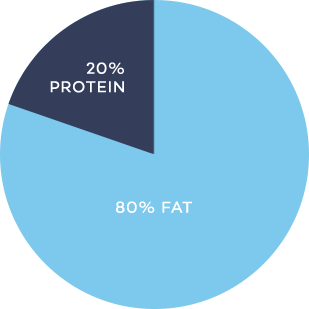
You must eat a lot of fat.
This is because your body can only get 35-50% of your calories from protein. If you go above this and cut out carbs you will get protein poisoning, which can damage kidneys and in extreme circumstances even lead to death. [87]
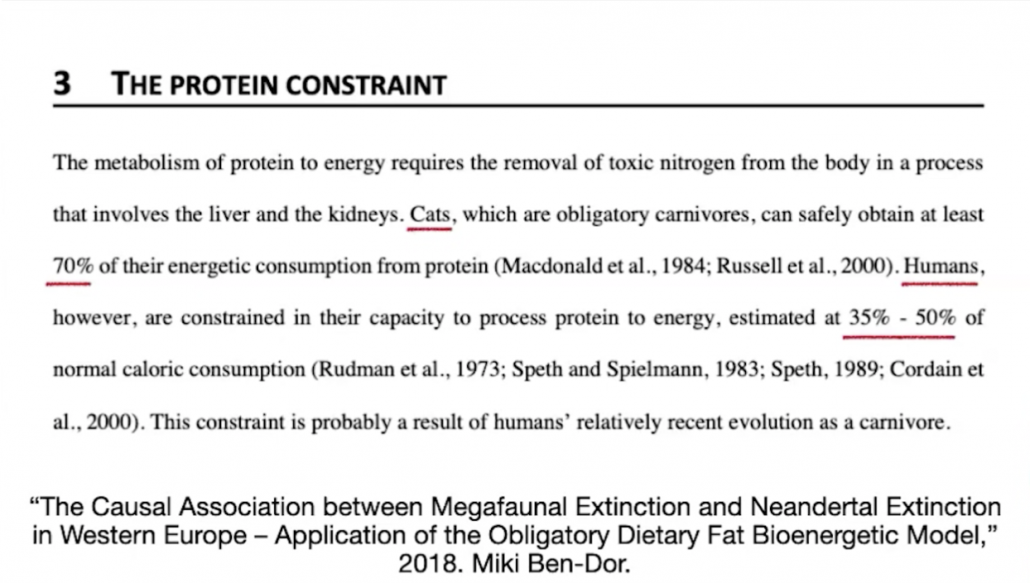
This isn’t to scare you, but to underline the importance of fat. When you think zero carbs, think high fat and you’ll be fine.
Our bodies are evolved to thrive on a high fat low carb diet.
Sample 7-Day Zero Carb Meal Plan
Here’s a sample standard no carb diet 7 day meal plan
| Day 1 | Day 2 | Day 3 | Day 4 | Day 5 | Day 6 | Day 7 | |
| Lunch | Ribeye Steak and Eggs | Eggs and Ribeye steak with tallow | Roasted Pork ribs | 8 oz. Pork belly | 8 oz Prawns with butter and 2 eggs | Pork ribs and eggs | Beef Short Ribs |
| Dinner | Lamb Chops and raw oysters (3) | Beef burger with tallow | 8 oz Ribeye with tallow | Beef burger with tallow and raw Oysters (3) | 8 oz Ribeye steak with tallow | Lamb chops with tallow | Salmon roasted with tallow |
What About Vitamin C?
One unfounded concern is that by cutting all plant foods (since all plant foods contain carbs), you’ll be deficient in vitamin C. Vitamin C deficiency leads to a debilitating disease called scurvy.
However, fresh meat has more than enough vitamin C to prevent scurvy, especially when consumed without grains and sugars that deplete vitamin C and interfere with our innate antioxidant-producing pathways.
Research published in Meat Science Journal tells us that fresh beef has approximately 1.6 mcg/g of vitamin C in grain-fed meat and 2.56 mcg/g in grass-fed meat. [59]
On a no sugar, no carb diet, if you’re consuming 1000 grams of meat (2.2 lbs per day) you will be getting 25.6 mcg and 16 mcg of vitamin C, respectively. It is far more than enough to be vitamin C replete.
| Beef Muscle Meat (1000 grams/2.2 lbs) | Amount Vitamin C | % sufficient to prevent scurvy |
| Grass-fed beef | 25.6 mcg | 256% |
| Grain-fed beef | 16 mcg | 160% |
What About Fiber?
The idea that we need fiber is a myth. In fact, studies show that fiber may be more harmful than helpful. [60] [61]
One 2012 study found that cutting fiber provided significant reductions in symptoms of constipation and IBS after only two weeks. The researchers concluded, “The previous strongly-held belief that the application of dietary fiber to help constipation is but a myth. Our study shows a very strong correlation between improving constipation and its associated symptoms after stopping dietary fiber intake.” [62]
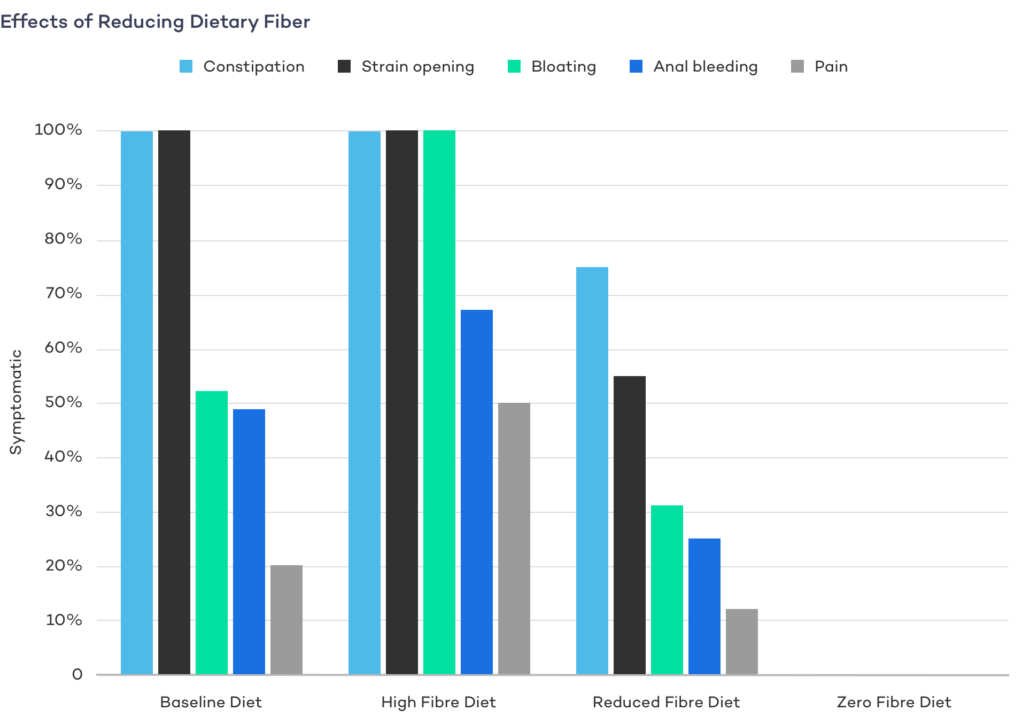
Evolutionary Foundations of No Carb Diets
Recent research led by Miki Ben-Dor tells us that humans likely evolved on a hyper-carnivorous diet of mostly fatty meats for nearly 2 million years up until the dawn of agriculture, only 10,000-8,000 years ago.
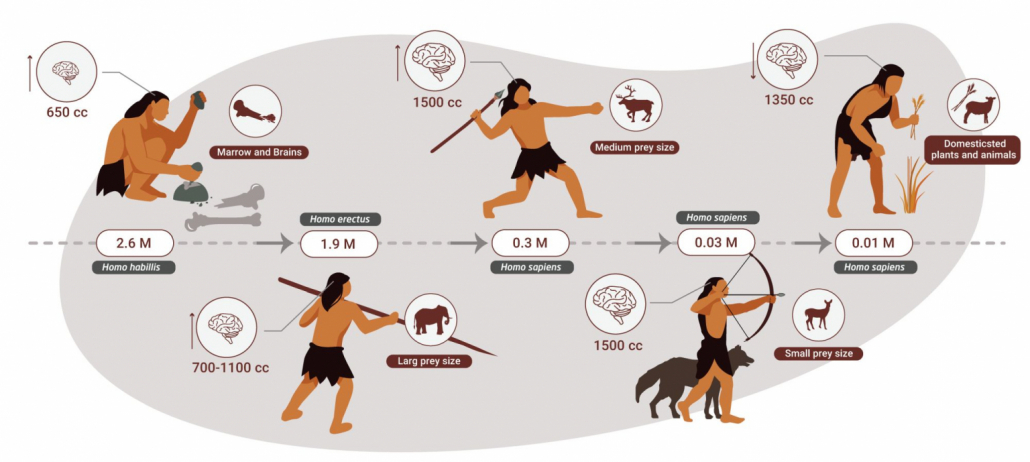
Source: Dr Miki Ben Dor
The No Carb Diet: The Takeaway
The no sugar, no carb diet is a way of realigning our diet with our ancestral diets.
Our modern diet is alarmingly high in sugars and carbs, which have been linked to numerous inflammatory diseases, including heart disease, cancers, and Alzheimer’s.
Cutting carbs means focusing on nutrient-dense whole foods, mostly from animals.
These zero carb foods offer hard to find nutrients in the perfect ratios and most bioavailable forms for our bodies’ needs.
Studies show that reducing carbs improves numerous markers of metabolic health, including reduced inflammation, improved energy, and improved digestion.
Eliminating carbs also means ditching processed foods and plant foods that contain inflammatory and damaging toxins.













